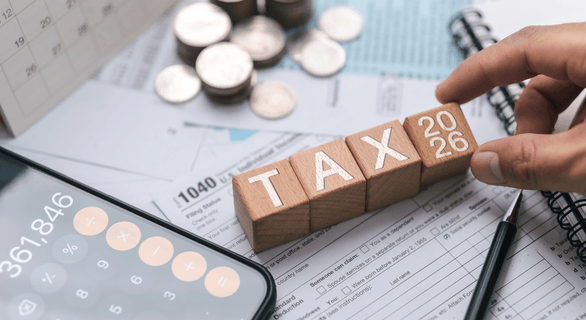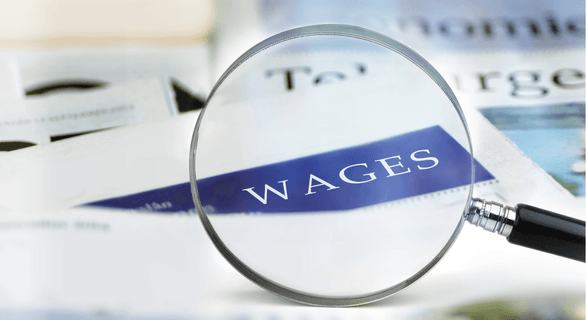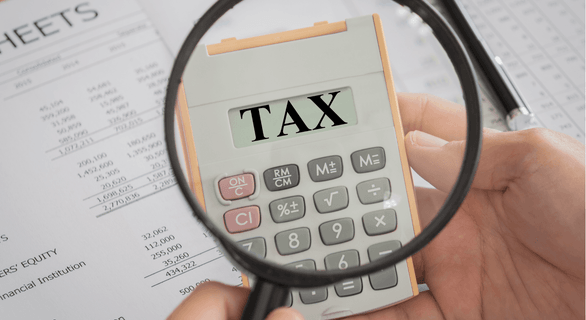
September 18, 2025
Budget Day: 2026 changes in Dutch Tax

INTRODUCTION
In the Netherlands, Prinsjesdag, Budget Day, is an important moment for businesses. Every year on the third Tuesday of September, this year on September 16th, 2025, the government presents its plans for taxes and public spending in the year ahead.
This year’s budget includes updates on corporate taxes, VAT, wage and income taxes, and other measures that will shape the business climate. The accompanying Miljoenennota (Budget Memorandum) goes deeper, outlining plans for investment in infrastructure, innovation, and regulatory changes.
For business owners and finance teams, Budget Day is more than tradition, it is a chance to see what the coming year might bring. Understanding these changes early can help you manage costs, protect profits, and plan with confidence.
Below, we have summarized the main changes in VAT, corporate taxes, and income taxes.
If you would like to discuss what these updates mean for your company, our team is here to assist.
PERSONAL INCOME TAX
Updated Tax rates in Box 1 and Box 3
As of January 1st, 2026, inflation in personal income tax will only be partially compensated. This leads to a higher relative tax burden for taxpayers. An adjusted application of the table correction factor (TCF) will be used, which normally fully follows inflation as calculated by Statistics Netherlands (CBS). This measure is intended as a budgetary offset, since the reduced VAT rate of 9% for culture, media, and sports will be maintained instead of being increased as was previously planned. Please kindly see the updates to Box 1 below:
|
2025 |
||
|
Bracket |
Taxable income |
Tax rate |
|
1 |
0 > €38.441 |
35,82%* |
|
2 |
€38.441 > €76.817 |
37,48% |
|
3 |
€76.817 > - |
49,50% |
|
2026 |
||
|
Bracket |
Taxable income |
Tax rate |
|
1 |
0 > €38.883 |
35,70%* |
|
2 |
€38.883 > €79.137 |
37,56% |
|
3 |
€79.137 > - |
49,50% |
* : including national insurance premiums (“NI”).
Box 3 (Savings and Investments) Adjustments
The government will also tighten taxation of savings and investments (Box 3):
- The deemed return on “other assets” will rise from 5.88% in 2025 to 7.78% in 2026.
- The tax-free allowance will decrease from €57,684 (2025) to €51,396 (2026).
- Until 2028, taxation will still be based on deemed returns, though a new system taxing actual returns is planned.
- Taxpayers can still provide evidence of lower actual returns to reduce their tax assessment.
Update to the lucrative interest regime
Since 2009, the lucrative interest regime has applied to benefits received by private equity and management participation professionals who acquire capital interests, such as shares or profit rights, as part of their remuneration. These benefits typically yield returns that are disproportionate to the capital invested or the risk assumed. The legislation allows taxpayers to submit a request to the Tax Authority, for income from an indirectly held lucrative interest to be taxed in Box 2 instead of being treated as income from other activities in Box 1, under the condition that at least 95% of the income received in a calendar year is distributed as income from substantial interest. To counter the tax benefits of this shift, a proposal was made to increase the effective Box 2 tax rate for income from lucrative interests from 24.5 % (2025) to 28.48% (2026) in the first bracket and from 31% (2025) to 36% (2026) in the second bracket. The 36% rate aligns with the rate applied in Box 3.
Tax leakage bonds
Within Box 3, mismatches in the rebuttal scheme created opportunities for fictitious tax losses when purchasing bonds or similar assets with accrued interest. To address this, the government proposes the following measures. Within the rebuttal scheme, bonds and comparable instruments must be valued at fair market value, including accrued interest, both at the start and end of the year. This valuation rule will also apply to other Box 3 assets with ongoing accruals, such as claims, debts, and other financial products, with the exception of savings. For full coverage of the mismatch, the exemption for short-term claims will be abolished within the rebuttal scheme. These measures has retroactive effect from August 25th, 2025, 16:00 CET, for assets that became part of Box 3 after that time.
Adjustment of the deemed rental value
Under current law, the value of a home for Box 3 income tax, as well as gift and inheritance tax purposes is based on the WOZ value (assuming the property is unoccupied). For rented properties with rent protection, this value may be reduced using the vacancy value ratio, which adjusts for lower marketability based on the ratio of annual rent to WOZ value. A legislative measure is planned to be introduced to exclude affiliated parties acting on a non-arm’s length basis from applying the vacancy value ration when valuing rented residential properties for tax purposes.
Income statement for qualifying non-resident taxpayers (still a proposal)
Individuals residing outside of the Netherlands but in EU, EEA, Switzerland or Caribbean Netherlands, whom have 90% of their worldwide income subject to Dutch taxation, can be qualifying non-resident taxpayers. These taxpayers are eligible for similar tax-deductions and tax-credits as Dutch tax residents.
It is proposed for the general requirement to provide an income statement from the foreign tax authority to demonstrate that the 90% threshold is met, to be removed. Following difficulties in obtaining these statements from foreign authorities. Moving forward, tax inspectors may request such a statement when necessary.
Abolition of the partial non-resident taxpayer status
The abolishment of the partial non-resident taxpayer status went into effect per January 1st, 2025. Expatriates with the 30% ruling that opted for the partial non-resident taxpayer status, are treated as foreign tax residents in Box 2 and Box 3, i.e. within these boxes certain income elements and assets are not subject to Dutch taxation.
Expatriates that received the 30% ruling after December 31st, 2023, can no longer opt for the partial non-resident taxpayer status and are now treated as local tax residents, their worldwide income should be considered within the Dutch personal income tax return of 2025 and onwards. For expatriates that benefitted from the 30% ruling in December 2023, fall within the transition period, allowing usage of the special taxpayer tatus up to and including the 2026 fiscal year.
WAGE TAX
Electric company car tax addition
Tax addition for private use of company cars is calculated based on the catalogue value of the car. The reduced tax addition for electric company cars has been phasing out, and will not be applicable anymore from 2026 onwards. In 2025, a reduced tax addition of 17% was applicable for electric vehicles over the first €30.000 (22% over the portion exceeding the cap). As of 2026, this discount disappears and all newly registered electric vehicles will be subject to the standard 22% tax addition rate, equal to fuel-powered cars.
Regulation of the company car market
The government proposes to regulate the company car market, as of 2027. It is intended for employers to only make available zero-emission cars to their employees, which they also use for private purposes (with tax addition being applicable). Should employers choose to provide fuel-powered cars instead, the employer will be taxed for 12% of the tax addition base. Company cars purely used for business purposes will not be affected.
Clarification of the bicycle scheme
The bicycle scheme will be clarified. For bicycles provided by employers that are used for business purposes , such as shared-, service-, and hub bicycles - no tax addition will apply, even if they are occasionally used for commuting or private purposes. The clarification removes existing uncertainty and confirms that a nil addition applies as long as the bicycle is not regularly kept at the employee’s home. Incidental storage at the place of residence(<10%), for example when taking the bike home occasionally, will not trigger a tax addition. Previously, when allowing private use, a 7% tax addition based on the recommended retail price would be applicable.
CORPORATE INCOME TAX
Rates remain the same in 2026
In spite of negative evaluation of the current rate structure, the Dutch corporate income tax rates in 2026 will remain the same as in 2025.
|
2026 |
|
|
Taxable amount |
Tax rate |
|
0 > €200.000 |
19% |
|
€200.000 > - |
25,8% |
Correction liquidation loss regime
The Dutch Supreme Court ruled that using group relief abroad does not block a Dutch parent company from claiming a liquidation loss, as long as some losses remain uncompensated at the time of liquidation. This means companies can still deduct significant liquidation losses even if part of the losses were already used elsewhere. The ruling creates a budget shortfall, resulting in need for offsetting measures, such as increasing the Invalidity Insurance Fund (Aof) contribution rate by 0.08% and amending the treatment of foreign exchange gains on participations as of January 1st, 2027.
VALUE ADDED TAX
9% reduced rate remains for culture, media, sports
The government has confirmed that the reduced VAT rate of 9% will continue to apply to cultural, media, and sports-related goods and services. Earlier plans to abolish this reduced rate were abandoned to protect accessibility and affordability. This provides stability to organizations and consumers in these sectors, which often rely heavily on the reduced VAT treatment. The decision reflects a balance between fiscal policy and cultural/social objectives.
MINIMUM TAX
Second Amendment Minimum Tax Act 2024
The Minimum Tax Act 2024 (Wet minimumbelasting 2024, WMB 2024), effective as of December 31st, 2023, introduced a minimum tax to ensure that multinational and domestic groups with revenues of €750 million or more pay an effective tax rate of at least 15% on their profits. Following the publication of the OECD Model Rules, the Inclusive Framework (IF) issued various administrative guidance documents. Some of the guidance was already incorporated into the WMB 2024 via the Amendment Act included in the 2025 Tax Plan package. This Second Amendment Act will incorporate the remaining administrative guidance from December 2023, June 2024, and January 2025, as well as some technical corrections.
The key topics include:
- Transparent entities and hybrid entities
- Different financial year of a non-consolidated group entity
- Adjustments to the book value in the context of the acquisition of a group entity
- Book value differing from that under financial reporting standards
- Deferred tax assets arising prior to the transition year as a result of a government arrangement or the introduction of a corporate income tax
- The temporary safe harbour rule based on a qualifying CbCR (Country-by-Country Report)
Simplified reporting and information exchange for minimum tax compliance
As part of the compliance framework for the Minimum Tax Act 2024 (Wet minimumbelasting 2024, WMB 2024), the ultimate parent entity or another group entity is required to file a Top-Up Tax Information Return (TTIR), containing detailed information to enable tax authorities to assess whether, and in which jurisdictions, a top-up tax is due.
A recent EU directive (DAC9) establishes further rules on administrative cooperation within the EU, including the introduction of a standardized TTIR form. Under this framework, multinational groups operating within the EU are required to file only one centralized TTIR for the entire group, which will then be automatically exchanged among the relevant EU Member States.
CUSTOMS
Full implementation of the Carbon Border Adjustment Mechanism (CBAM)
The Carbon Border Adjustment Mechanism (CBAM) is an EU measure designed to address CO₂ emissions embedded in the production of goods imported into the EU. Initially, CBAM applies to the steel/iron, cement, fertilizer, aluminium, and electricity sectors. A transitional period runs until 2026, during which importers of goods covered by CBAM are subject solely to a reporting obligation, requiring quarterly disclosure of the quantities imported and associated emissions. Following this transition, CBAM will become fully operational in 2026, with two additional legal provisions announced to be enacted to support its implementation:
- First, the Minister of Finance will be designated as the administrative body in the Netherlands responsible for the sale and repurchase of so-called CBAM certificates.
- Second, the bill prohibits actions that contravene certain provisions of the regulation, thereby enabling the Dutch Emissions Authority (NEA) to exercise administrative oversight and take enforcement action.
If you would like to understand what these updates mean for your business, our Tax team is ready to provide clarity and guidance. We advise on corporate tax, wage tax, VAT, transfer pricing, cross-border transactions, and compliance with new EU directives, ensuring your business is well-prepared for what lies ahead.




